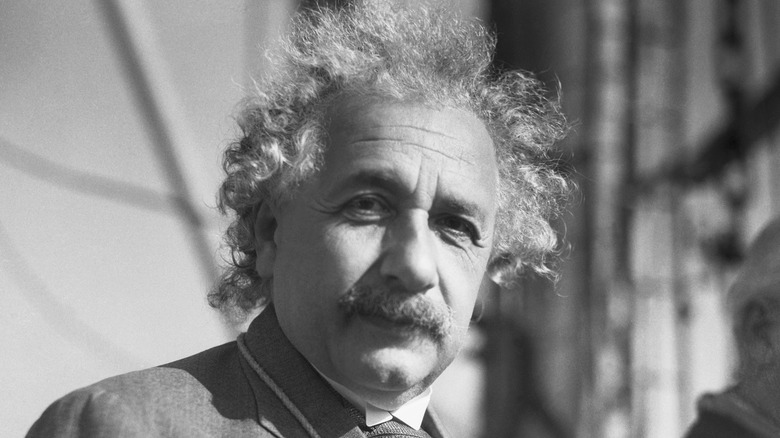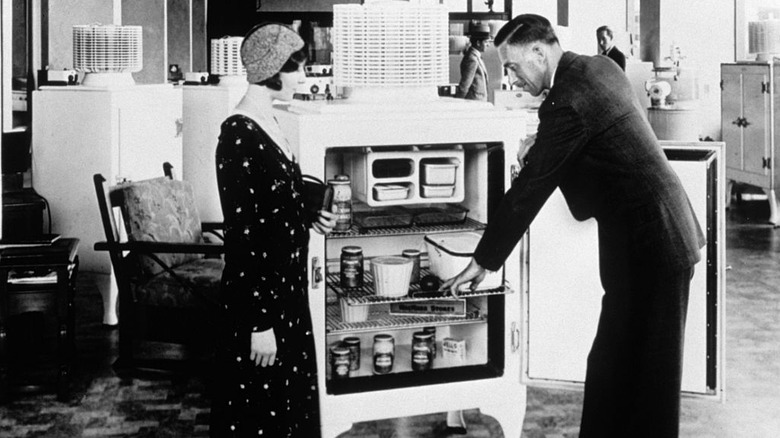The Unique Kitchen Appliance Designed By Albert Einstein That No One Ever Used
Whether you know him as the genius who developed the theory of general relativity, the frizzy-haired physicist who stuck his tongue out in a picture your high school science teacher probably had on a poster, or as the guy who popped up every now and then in "Oppenheimer," you've doubtlessly heard of Albert Einstein. (Not to be confused with the Einstein Bros., bagel merchants who developed the proudly inauthentic Texas brisket egg sandwich.) Heck, his name has become such an obvious byword for genius that these days you'll usually only hear it used ironically. ("Way to go, Einstein!") But did you know that he helped invent a new kind of refrigerator? If you didn't, that's understandable — for various reasons, it never caught on.
In 1926, Einstein was spurred to action after he read a newspaper article about a family in Berlin who died in their sleep because of a gas leak that originated from their refrigerator. Horrified by these needless deaths, he teamed up with a friend of his, a scientist and inventor named Leo Szilard, to develop a refrigerator that didn't require any moving parts; with no moving parts, there would be no way for the toxic gases that kept early refrigerators cool to leak, and therefore no deaths. Instead, the Einstein-Szilard refrigerator would use an electromagnetic pump that alternated currents and moved liquid metal in a way that acted as a sort of piston. It was an interesting, innovative idea — so why don't we see it in use today? Why didn't the fridge with the moving parts vanish into refrigerator history and go the way of the ice box?
A confluence of factors kept Einstein's refrigerator from taking off
Part of the reason why the Einstein-Szilard refrigerator never caught on had to do with chemicals. The old fridges, the ones that caused those gas leaks, used toxic chemicals like ammonia. Einstein's new fridges also used ... well, ammonia, not to mention butane. The lack of moving parts reduced the risk of leakage, but the dangerous gases were still present. Perhaps they could have ironed these kinks out were it not for a few other issues. Firstly, there was the invention of freon in 1928, a less dangerous chemical whose existence defeated the purpose of an expensive, inefficient doohickey like Einstein's refrigerator; secondly, and more pressingly, there was the Great Depression, which hit Germany hard enough to stymie all sorts of potential businesses — to say nothing of the eventual rise of the Third Reich, which caused Einstein and Szilard to abandon their work on the refrigerator and flee Germany.
Still, it wasn't a total wash. Although it wasn't a world-beating success, Einstein and Szilard managed to sell enough refrigerators to keep themselves afloat in difficult economic circumstances — in fact, Szilard was living off of the money he made from the fridge when he developed the idea behind the first nuclear chain reaction. And when it became apparent that freon was eating a hole in the ozone layer, some scientists revisited their idea for a fridge. It hasn't totally caught on yet, but who knows what might happen in the future?

